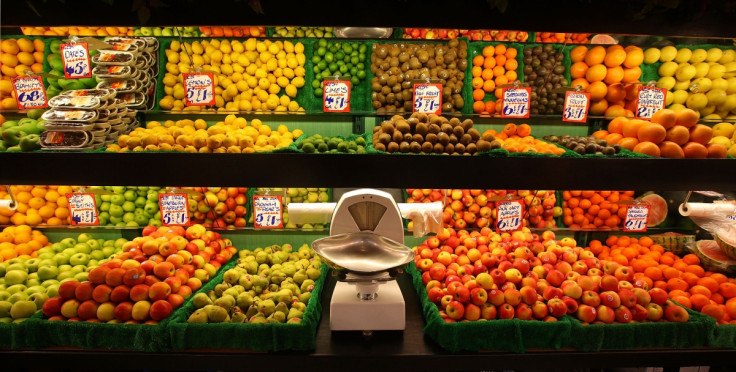National vegetarian week: Five studies that show the benefits of a vegetarian diet

National vegetarian week will take place in the UK from Monday, 16 May, to Sunday, 22 May, 2016. Now in its 24th consecutive year, this celebration of all things veggie - with many events held around the country - promotes culinary traditions and healthy recipes that are much loved by the vegetarian community.
The vegetarian diet is defined by the NHS as a diet which excludes red meat, poultry, fish, shellfish or animal by-products such as gelatine. A vegan diet also excludes dairy and eggs.
In decades past, multiple studies have examined the effects of vegetarian diets on the health, showing that choosing the vegetarian option may present lots of benefits.
Some research have also identified the negative health consequences of eating too much meat, in particular red and processed meat. So what evidence has been gathered so far in favour of a vegetarian diet?
The Oxford Vegetarian Study
This 1999 study conducted by the University of Oxford was one of the first large-scale research to really focus on the positive effects of vegetarian diets.
From 1982-1984 and during a twelve year period, it followed 6000 vegetarians and vegans, as well as 5000 non-vegetarian control subjects, in the UK. Cross-sectional analysis of study data showed that vegans and vegetarians had lower cholesterol concentrations than meat eaters.
After adjusting for other factors such as smoking, body mass index, and social class, overall death rates were lower in non-meat eaters than in meat eaters. In particular, mortality from ischaemic heart disease was higher for people with larger intakes of total and saturated animal fat - a robust conclusion about the benefits of going wild for vegetables.
Vegetarians and cancers
Ten years later, a further study published in the British Journal of Cancer added to these results by focusing on the rates of cancers in vegetarians and non-vegetarians.
Based on 61,566 British men and women - both vegetarians and non-vegetarians - the research showed that being vegetarian - or eating fish but no meat - decreased cancer mortality overall. The vegetarian diet, excluding fish, was positively linked to a reduction in the cases of stomach, bladder and ovarian cancer, as well as blood cancers.

Veggies and the environment
Published in PNAS, a recent study has focused on the global health and environmental impacts of switching to a vegetarian diet.
The scientists modelled four different dietary scenarios for the year 2050; The first one featured sugar, grease processed meat, the second one was based on global dietary guidelines with fruits and vegetables and limited amounts of red meat and calories, the third and fourth scenarios were a vegetarian diet model and a vegan model both conforming to the dietary guidelines.
They found that eating little or no meat, but more fruit and vegetables, could save up to 8 million lives by 2050 and reduce greenhouse gas emissions by two-thirds. In the long term, this could lead to a decrease in healthcare-related costs.
Red and processed meat may cause cancer
A cancer monograph published in October 2015 by the World Health Organisation (WHO) and the International Agency for research on cancer (IARC) classified red meat as probably carcinogenic and processed meat as carcinogenic.
Basing their conclusions on a large scientific literature-review, the scientists found that eating too much meat regularly - more than the maximum 500 grams per week recommended by the World Cancer Research Fund - was significantly associated to developing a cancer of the colon and the rectum.
Meat increases all cause-mortality
Beyond the cancer risk, a study has found that eating processed meat on a daily basis may increase mortality. Scientists from the Mayo Clinic conducted a review of six large-scale studies, involving more than 1.5 million people in the US, China and the European Union (EU). Overall, eating processed meat was associated with higher levels of "all-cause mortality".
The link between daily consumption of red meat and mortality was also statistically significant, although less so than in the case of processed meat.
The conclusion? Reducing processed meat and red meat consumption can make us live longer, if it is included as part of an otherwise balanced diet.

How to enjoy the vegetarian diet
Health professionals often offer this advice: though a vegetarian diet - rich in grains, nuts, seeds, fruits and vegetables - can be really healthy, vegetarians will only reap the benefits if they also follow other guidelines.
This means eating at least five portions of fruit and vegetables every day, basing meals on potatoes, bread, rice or pasta, drinking plenty of water, and deriving protein from beans, pulses and eggs. Saturated fats and sugars should also be avoided whenever possible.
© Copyright IBTimes 2025. All rights reserved.






















